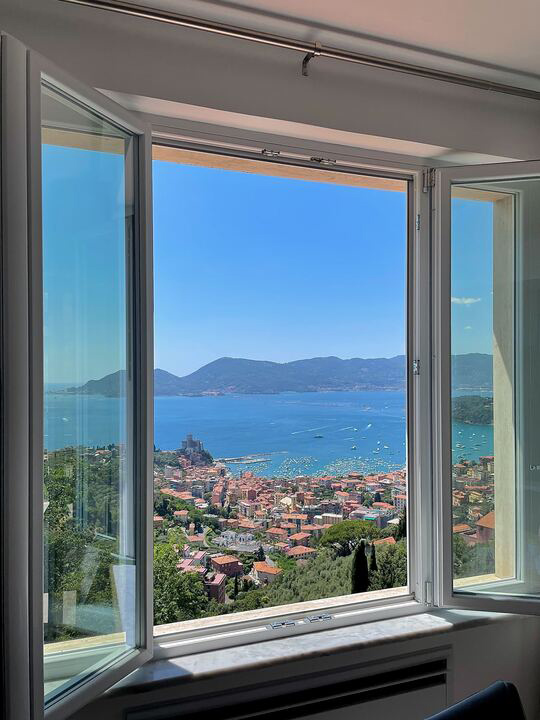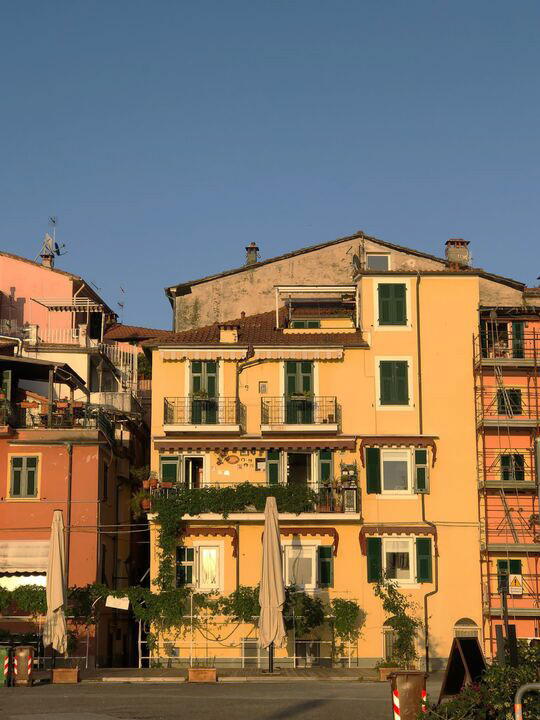“What do you mean you don’t know who Maria De Filippi is?”
After living my whole life in Portland, Oregon, at 15 years old, I moved to Italy – a place that many would call a paradisiacal destination – with my family due to my parents’ divorce.
I admit – I didn’t miss the rain. However, since I would soon begin my second year of high school in an Italian public liceo, I was no longer able to speak English with anyone.
I grew up completely bilingual, learning English in school and Italian at home, so I always felt like I maintained a balance between the two sides of myself. I developed two identities that co-existed in harmony, even though English dominated since I spent most of my days outside of the house.
However, when I moved to Italy, I felt like my Italian side trampled the American girl who lived inside of me. Besides the occasional phone call with my American friends, I rarely spoke a word of English for four years.
Sometimes I would try talking to myself in front of the mirror, just to see how the words sounded on my tongue. When I realized my thoughts were formulated more in Italian than in English, I would try to force myself to think in English.
Mostly, I was terrified that I would develop an Italian accent.
Developing an accent would signify that the language I had learned science with, cultivated friendships with and grew a passion for writing with was no longer mine. It meant that I was losing my past, and if I ever moved back to the United States, people would see me as an “outsider.” They wouldn’t see me as an American.

I tend to be a little overly dramatic. However, in my developing teenage mind, it felt like losing practice in hearing and speaking in English represented that I was slowly losing part of my identity.
The most difficult aspect of this experience was the overwhelming isolation. I felt like I couldn’t talk to anyone about how I was feeling – even my parents wouldn’t understand, because they grew up in Italy and I grew up in the U.S.
I even tried speaking English to my family to compensate for the overly-dominant effect Italian was having on our linguistic development. Especially since I have two younger siblings, it would have been both stabilizing and helpful in maintaining their English skills. I was swiftly shut down.
I learned that loving someone and understanding them are two completely different things.
This is when I turned to music.
When I felt tense or stressed, American R&B and alternative artists such as Khalid and Billie Eilish were there to calm me down. Other indie pop groups like Coldplay made me feel uplifted and revived.
I began listening to American artists during my bus rides to school each morning. As I looked out the bus window, music whisked me back in time. Despite just sitting on a bus in a small Italian town, I felt like I was back in Portland, listening to the same songs on the radio in my mom’s Audi, about to go grocery shopping at QFC.

Music reminded me of who I was and where I was from.
It was especially useful in moments when classmates would bring up Italian pop culture references I wasn’t familiar with. While I had few issues from a linguistic standpoint, teenage pop culture was something that was entertained less frequently in my household.
I didn’t grow up with cultural references such as Sanremo – the annual Italian music festival – singers such as Vasco Rossi or Tiziano Ferro, and TV shows such as “Amici” and “Uomini e Donne.” Even Italian soccer, which truly is a big deal there, was something I struggled to connect with my peers about.
As I began to absorb these references, learning about the entrepreneurial TV director Maria de Filippi and how she jumpstarted the music careers of many Italian artists, I held on to my American music.
I found comfort in it, particularly in Coldplay’s “Paradise.” As Chris Martin sang of a girl who escapes reality to find paradise, the song’s spirit uplifted me and its lyrics resonated with my own search for paradise.
I was reminded that finding paradise or a feeling of belonging doesn’t necessarily mean treasuring my immediate surroundings – I could find paradise wherever I wanted to. My inner world was my own, and within it, I would always feel at home.
As I adapted to my Italian life, I grew more acquainted with its customs and began listening to Italian music as well. I’ve grown to appreciate both.
While my experiences challenged my bicultural identity, it cemented my sense of self. As I constantly toiled with the question of whether I was more Italian or American, whether I was happier here or there, whether I wanted to live in Italy or the U.S., I achieved an internal state of peace.
In either case, music made me realize that I would be OK.
Before I moved, I thought that the concept of “home” was synonymous with Portland. Now, through music and distant friends and family, I think of home as a state of being: comfort.




Comments are closed.